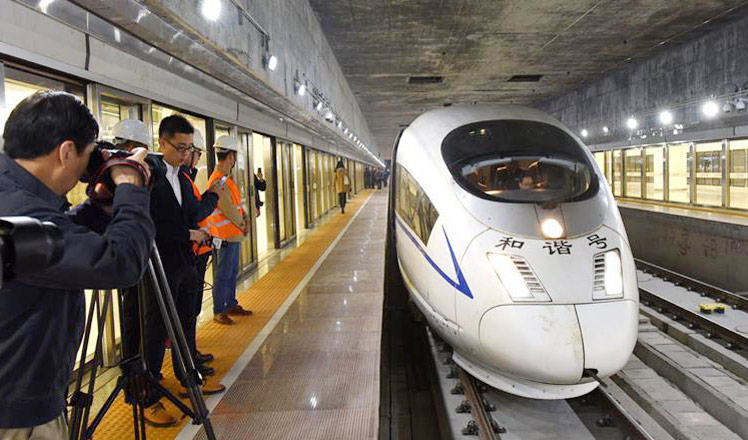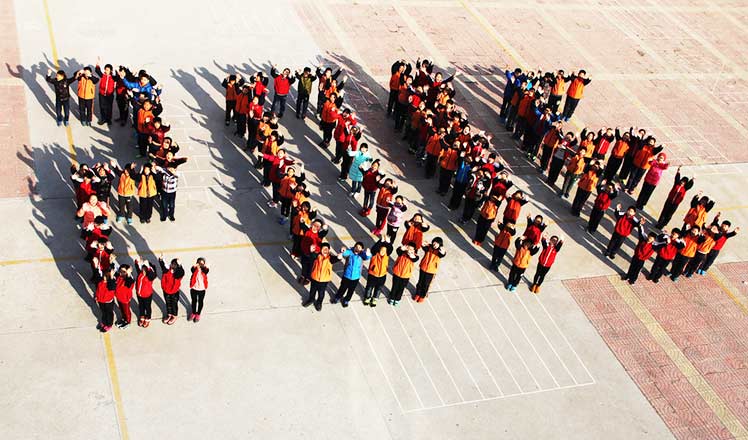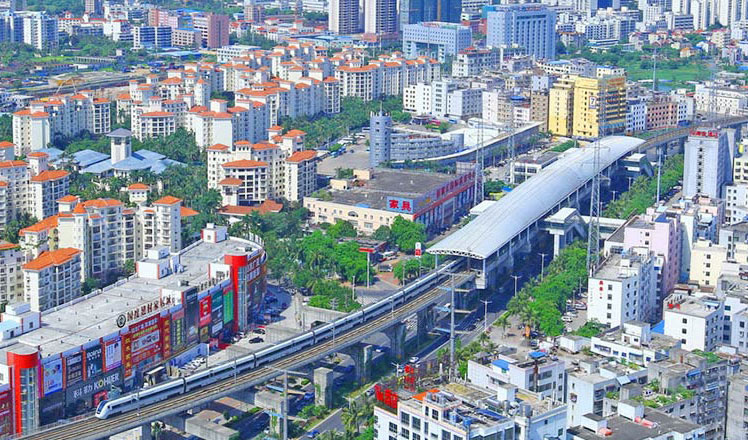Looking ahead: Hopes for 2016
Updated: 2016-01-01 07:47
(China Daily)
|
||||||||
11 Yang Qiang, secretary of the board of the TAL Education Group
Looking ahead to 2016, I believe online education will experience further development and students will enjoy better, cheaper and more-efficient online learning, as technologies in this area keep improving. More complicated and advanced technologies, such as virtual reality and brainwave technology, will have opportunities to be applied to online education and may impact students' learning patterns in ways that we haven't imagined.
12 Zhou Zhonghe, member of the Chinese Academy of Sciences and director of the Institute of Vertebrate Paleontology and Paleoanthropology
I would expect more interesting discoveries in paleoanthropology in the coming year. In 2015, a number of important fossils were unearthed, such as the 47 teeth excavated in Hunan province that belong to the earliest modern humans in East Asia, and a fossilized skull of Homo erectus found in Anhui province.
In the coming year, more clues about the origins and migration of modern humans will emerge, as careful examinations are carried out on the fossil samples.
In the past seven to eight years, Chinese paleoanthropologists have carried out a number of investigations and excavations that could lead to exciting new discoveries. Technological advancement in recent years, such as DNA extraction from ancient bones, will tell us more interesting stories behind those fossils.
13 Shen Jinke, spokesman for the People's Liberation Army Air Force
I wish all readers of China Daily a happy New Year. I hope more young people will take an interest in the air force, and would like to join during the coming year.
14 Ying Songnian, expert in administrative law and professor at the China University of Political Science and Law
What I am looking forward to in 2016 is details about building government by rule of law. The central leadership has put forward the goal and planned to complete it by the end of 2020, but the urgency for the country is to provide more details or small goals at each stage in the next five years. Otherwise, it will be hard to say we have established a government by rule of law and difficult to convince the public.
15 Dimitri de boer, former team leader of the EU-China Environmental Governance Programme, and consultant for ClientEarth, a European environmental law group
The coming year will be a critical one for pollution control in China. Environmental departments have started to issue red alerts in Beijing, and everyone is now really fed up with the pollution-government, businesses, the public, all of us.
Expect government to become tougher on polluters. Prosecutors can now bring cases against administrative departments, and 2016 will see new regulations allowing provincial-level environmental departments to take over if lower-level authorities fail to carry out their duties.
Last year, the courts ruled in some of the first environmental public interest litigation cases brought by NGOs, and in 2016 we will see many more such cases as environmental NGOs continue to gain the required skills and confidence. In turn, let's hope that all stakeholders appreciate the important and positive role NGOs play in the war on pollution. The emergence of environmental rule of law is one of the most exciting developments today and will be key in achieving China's climate targets.
16 Liu Yongfu, head of the State Council Leading Group Office of Poverty Alleviation and Development
This year is the first year of China's 13th Five-Year Plan (2016-20), and we will write the guidelines to fight poverty, to fulfill the goal of lifting more than 70 million people out of poverty by 2020. In 2016, we will establish a database to record people who still live in poverty, set up provincial-level financial platforms to raise money and build county-level resource distribution hubs to manage money. We will also improve the evaluation system.
The central government is paying great attention to the poverty alleviation. By 2020, poverty will be eradicated in rural areas, and there will be no more poor counties across the country.
17 Jiang Chunliang, researcher at the PLA Academy of Military Science
In the coming year, the ongoing reform of the People's Liberation Army will continue to streamline the command chain and organizations that have proved to be inefficient. The proportion of combat units and the officer-soldier ratio will be further improved, and the PLA is set to receive more-advanced weapons and equipment as the existing ones are upgraded. The overhaul will boost the military's capability to perform not only combat operations, but also a wide range of noncombat missions. In addition, a number of PLA academies and schools will be transferred to local education departments, because the PLA will depend more on civil institutes to recruit and train new officers.
18 Li Jiaxiang, director of the Civil Aviation Administration of China
In 2016, we will open at least 200 new air links with foreign nations and invest more funds to build infrastructure to support the Belt and Road Initiative. More training sessions will be held for civil aviation workers from nations covered by the Belt and Road initiative. Domestically, ensuring flight punctuality will remain a top priority for us, so we will open more large-capacity air traffic paths.
19 Liu Liqing, founding country director of Marie Stopes International China
Young people at the ages of 10 to 24 comprise 22.67 percent of the total population in China. We believe that they will play a more and more significant role in advancing comprehensive sex education in 2016, because they are the key to the solution. More youth-related organizations such as youth leagues, volunteer teaching organizations and social work agencies have been engaged in comprehensive sex education in 2015. With the Chinese government attaching more importance to sex education now and in the future, we hope that more parents will be willing to honestly discuss issues of sexuality with their children, more local NGOs will integrate sex education into their programs, more public and private clinics and hospitals will provide youth-friendly sexual health services.
20 Zhu Songling, director of the Institute of Cross-Straits Relations
The first and most important event for cross-Straits relations in 2016 will be Taiwan's leadership election on Jan 16. No matter what result the election brings, Taiwan will have a new leader and a new legislature. The change could be a turning point for the Taiwan situation, and also a challenge for cross-Straits relations.
The new leadership's attitude toward the 1992 Consensus is critical. On May 20, the new leader's inaugural speech will be worth paying attention to, especially how cross-Straits relations are defined. I hope the exchanges will continue, as they will benefit people from both sides. Personally, I am not optimistic about the election result and cross-Straits relations after the change. Relations could enter a phase I call "cold peace", or even worse.
- Top planner targets 40% cut in PM2.5 for Beijing-Tianjin-Hebei cluster
- Yearender: Predictions for 2016 through 20 questions
- Asia's largest underground railway station opens in Shenzhen
- Shanghai bans drug-using actors, drivers
- Clamping down to clean up the air
- Yearender: Ten most talked-about newsmakers in 2015
- Over 1 million refugees have fled to Europe by sea in 2015: UN
- Turbulence injures multiple Air Canada passengers, diverts flight
- NASA releases stunning images of our planet from space station
- US-led air strikes kill IS leaders linked to Paris attacks
- DPRK senior party official Kim Yang Gon killed in car accident
- Former Israeli PM Olmert's jail term cut, cleared of main charge

 Yearender: China's proposals on world's biggest issues
Yearender: China's proposals on world's biggest issues
 NASA reveals entire alphabet but F in satellite images
NASA reveals entire alphabet but F in satellite images
 Yearender: Five major sporting rivalries during 2015
Yearender: Five major sporting rivalries during 2015
 China counts down to the New Year
China counts down to the New Year
 Asia's largest underground railway station opens in Shenzhen
Asia's largest underground railway station opens in Shenzhen
 Yearender: Predictions for 2016 through 20 questions
Yearender: Predictions for 2016 through 20 questions
 World's first high-speed train line circling an island opens in Hainan
World's first high-speed train line circling an island opens in Hainan
 'Internet Plus' changes people's lifestyles in China
'Internet Plus' changes people's lifestyles in China
Most Viewed
Editor's Picks

|

|

|

|

|

|
Today's Top News
Shooting rampage at US social services agency leaves 14 dead
Chinese bargain hunters are changing the retail game
Chinese president arrives in Turkey for G20 summit
Islamic State claims responsibility for Paris attacks
Obama, Netanyahu at White House seek to mend US-Israel ties
China, not Canada, is top US trade partner
Tu first Chinese to win Nobel Prize in Medicine
Huntsman says Sino-US relationship needs common goals
US Weekly

|

|







